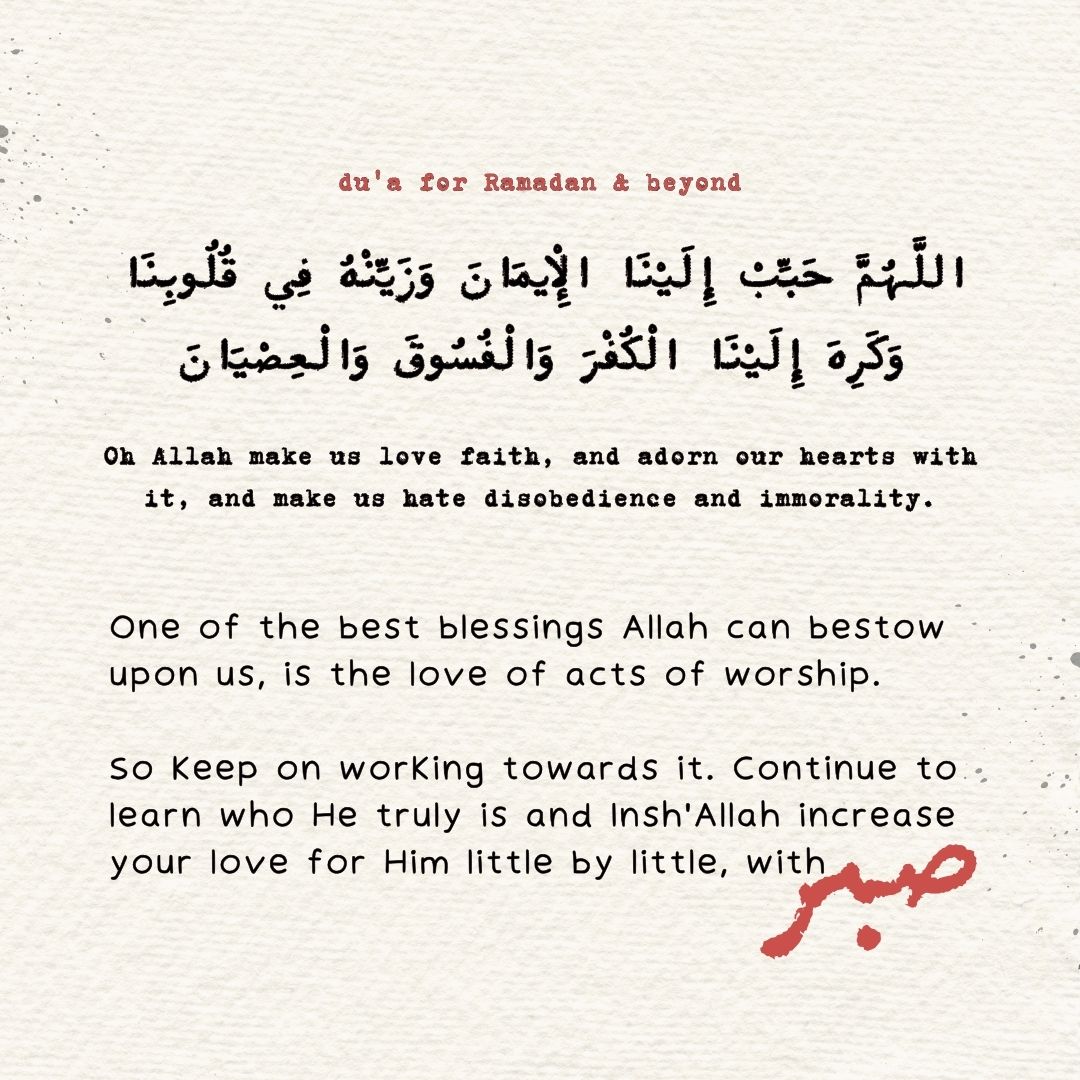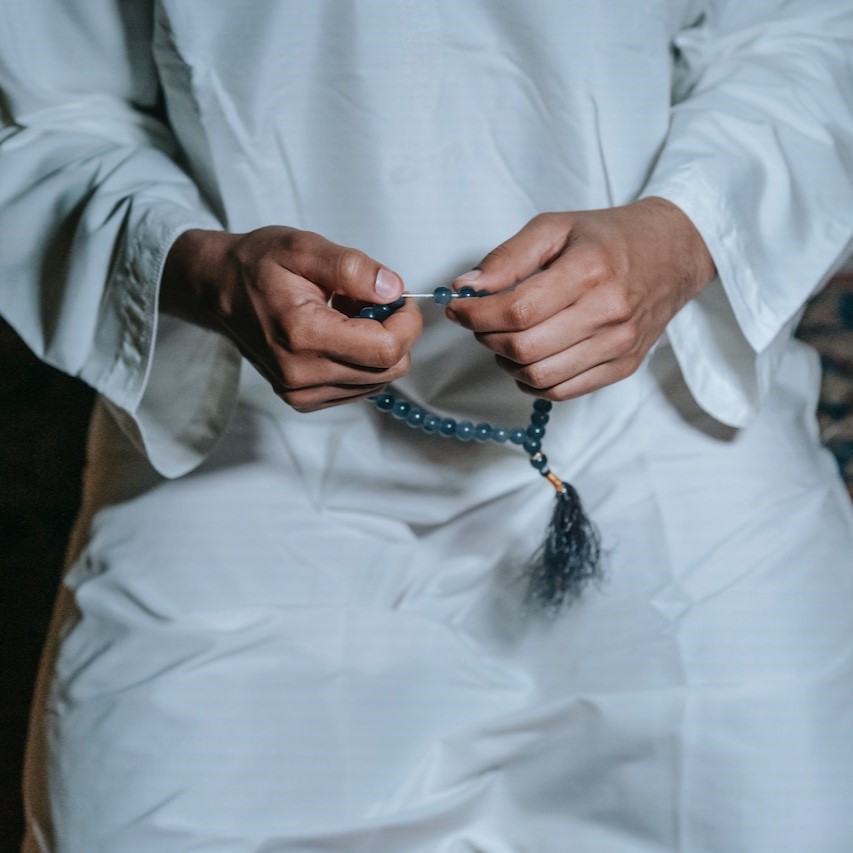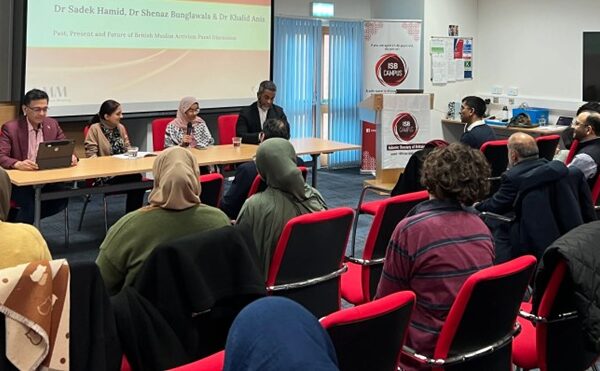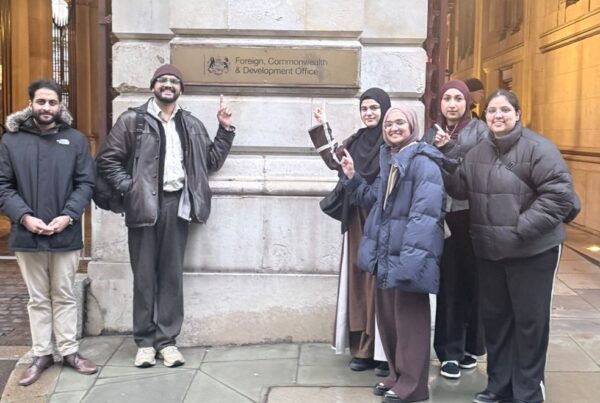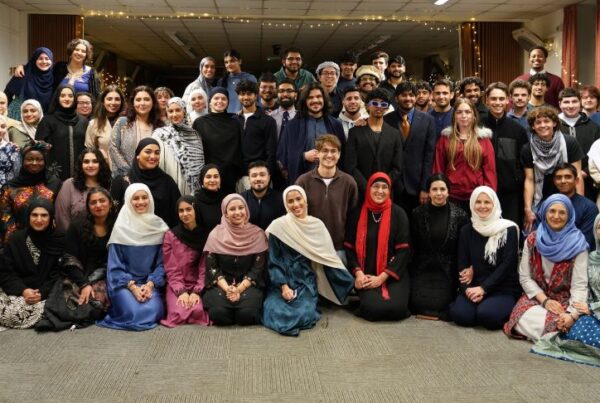Ramadan 'Moonlit Musings' series
For this short reminder I wanted to touch upon something that’s very close to my heart, which is the concept of صبر – steadfastness or patience.
The صابرين are those who keep obeying Allah and stay content with everything He has decreed. We have so many clear examples of them today. Those in Gaza have gone through unbelievable horrors and trials, but they remain steadfast. I’ve seen kids praying janaza countless times, reading Quran beautifully over the rubble of their houses, saying حسبنا الله ونعم الوكيل after their loved ones were martyred.
How could we ever compare ourselves to them? How do we reconcile ourselves with the way the world is acting?
Everyday is a test, to see whether you’ll stay paralysed with that grief and the guilt of the possibility you’re not doing everything within your power to do or if you will continue to protest, fundraise and fight in every way you can. We have to emulate their صبر, within our protests, within all our acts of worship.
One of my favourite aayahs is:
فَٱصْبِرْ صَبْرًۭا جَمِيلًا
So endure/be patient, with a beautiful patience
Allah doesn’t only command us to be patient, but to also embody it in a beautiful manner. When faced with hardship, we turn back to what Allah has taught us. This is something so elemental within our deen, and is greatly intertwined with the main reason we fast: to gain Taqwa [2:183]
يَـٰٓأَيُّهَا ٱلَّذِينَ ءَامَنُوا۟ كُتِبَ عَلَيْكُمُ ٱلصِّيَامُ كَمَا كُتِبَ عَلَى ٱلَّذِينَ مِن قَبْلِكُمْ لَعَلَّكُمْ تَتَّقُونَ
You who believe, fasting is prescribed for you, as it was prescribed for those before you, so that you may be mindful of God.
Having Taqwa means always being God-conscious and therefore having صبر in your remembrance of Him. This can come in so many forms: whether it’s slowing down your salah a little more, doing adhkar throughout the day, or making more duas in sujood, you are always thinking of Allah, so the intention is always to please Him. And when that becomes the only reason for each of your actions, you become a person of taqwa.
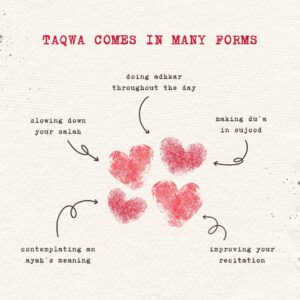 But how else can we take those steps in becoming a Muttaqin, a person of taqwa? It’s definitely a lengthy question, and something you should probably ask a sheikh, but I just wanted to touch upon a few things.
But how else can we take those steps in becoming a Muttaqin, a person of taqwa? It’s definitely a lengthy question, and something you should probably ask a sheikh, but I just wanted to touch upon a few things.
Recently I watched a Yahya Raaby podcast about how the Quran should be present within every aspect of our life: part of our speech, conduct, character, the Quran wasn’t sent down to just put on in the background or even only recite. This is something I definitely lose focus of a lot. It’s so easy for me to get consumed by the enjoyment of purely memorising a surah that I really like, but becoming a true carrier of the Quran means to constantly apply tadabbur – contemplating each ayah’s meaning and purposes.
And I don’t want to discount the importance of regular recitation because it is extremely important, but I feel, at least for me, the constant prioritisation of it has possibly taken away from how much I genuinely gain from the Quran.
In the podcast they posed this question: “Is the Quran going to be an evidence for, or against you on the Day of Judgement?” It really struck me – I’ve not really properly thought about that concept a lot and so it definitely instilled some fear. For example, how do you make sure you’re truly getting the most out of each page of the Quran, especially on days when you’re exhausted and caught up in so many things?
I was reminded of my grandad when thinking about this. He’s someone whose mind is never quiet; in a constant state of tadabbur. When I was younger, I think I kind of just passed it off or found it a bit funny when he would randomly start reciting an ayah or suddenly start announcing a new reflection on some verses whilst making his Egyptian coffee, but it’s so inspirational to me now.
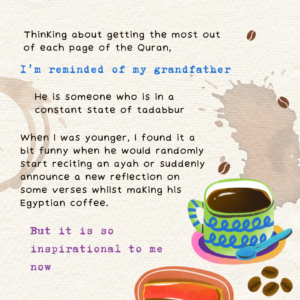 The ability to have ayaat at the forefront of your mind is extremely powerful and comes with being steadfast in our worship. The sahaba were said to read 10 verses at a time and then go and ponder over them for a while, practise their teachings, and only after that would they go onto the next.
The ability to have ayaat at the forefront of your mind is extremely powerful and comes with being steadfast in our worship. The sahaba were said to read 10 verses at a time and then go and ponder over them for a while, practise their teachings, and only after that would they go onto the next.
Reflect and think about the things we can practically implement within our lives. Where can we find links to what we see day to day? This is definitely something that ISB Quran circles and ones like it have helped me with a lot and something I hope we’re all looking forward to doing more of in Ramadan, insha’Allah.
But also, actions like taking small steps in improving our recitation, constantly pursuing علم (knowledge) and generally trying to deepen your connection to Allah are all ways to help in increasing tadabbur.
This last one, deepening our connection to Allah, is always the most complex and something I think I found confusing when I was younger. Growing up, I guess I grew to fear Allah more than to love Him. I was always focused on the ayaat and names about His wrath and punishment more than the ones that showed His love and beauty.
But gradually, I began to have more patience with the Quran and reflected more upon what I was actually reading. I began to get to know Allah properly.
There are so many verses that present Allah’s beautiful attributes: His mercy, forgiveness, wisdom. I learnt and I am still learning to love Allah, I think it’s a constant state, and one that is definitely exemplified within Ramadan.
This made me think about what I want to ask Allah for in Ramadan and was reminded of the dua that goes:
اللهُمّ إني أسألك حُبك وحب من يُحبك وحب كُل عملٍ يُقربني لحبك
Oh Allah I ask you for your love, and for the love of those who really love you and the love for every deed that will get me close to your love.
It’s such a beautiful dua, but one I only came across recently, and it made me think again about taqwa. If you truly love someone, you’ll think about them a lot. You’ll be conscious of how they would view your actions, your character, your speech. So learning to love Allah wholeheartedly is learning to be God-conscious.
But how else do we learn to love Allah?
Allah says in Surah Rum:
إِنَّ فِى ذَٰلِكَ لَـَٔايَـٰتٍۢ لِّقَوْمٍۢ يَتَفَكَّرُونَ
There are truly signs in this for those who reflect
So again, of course we get to know Allah through his physical revelation, the Quran, but what about His “silent revelation” (as Ustadh Hisham Abu Yusuf calls it). We read through Allah’s ayaat, His signs, everyday, but we also see them – within and around ourselves.
Allah swears by His creation so many times, and makes us see the beauty within it. Such a great example is Surah Takwir where He swears by the planets that recede and hide, and the night that descends, and the dawn that softly breathes. These are the kind of verses that truly makes you appreciate everything you have, and helps in filling our hearts with faith, with iman.
I wanted to quickly mention a dua in this context, another one I hope to use in and beyond Ramadan:
اللَّهُمَّ حَبِّبْ إِلَيْنَا الْإِيمَانَ وَزَيِّنْهُ فِي قُلُوبِنَا وَكَرِهَ إِلَيْنَا الْكُفْرَ وَالْفُسُوقَ وَالْعِصْيَانَ
“Oh Allah make us love faith, and adorn our hearts with it, and make us hate disobedience and immorality.”
One of the best blessings Allah can bestow upon us is the love of acts of worship. So keep on working towards it. Continue to learn who He truly is and insh’Allah increase your love for Him little by little, with sabr.
Any fault is with me and any good is from Allah swt.
